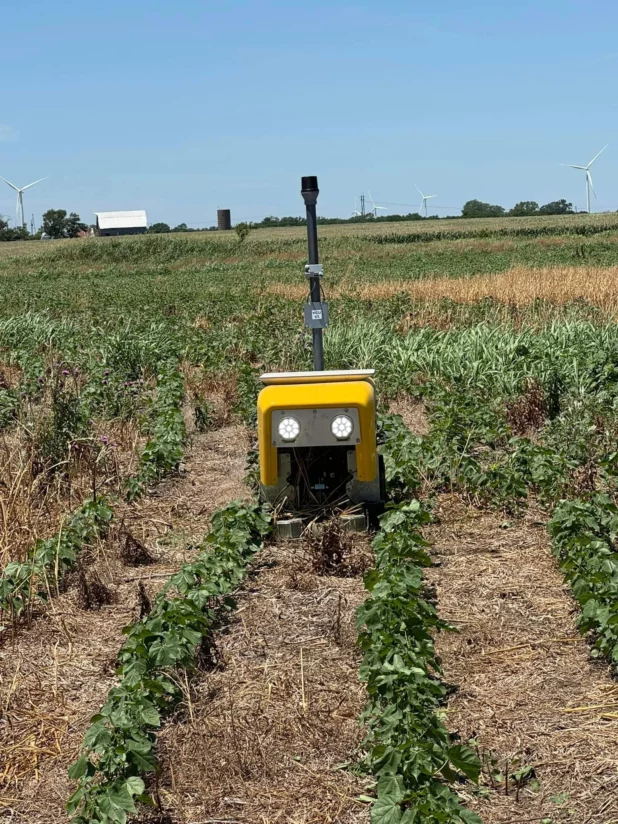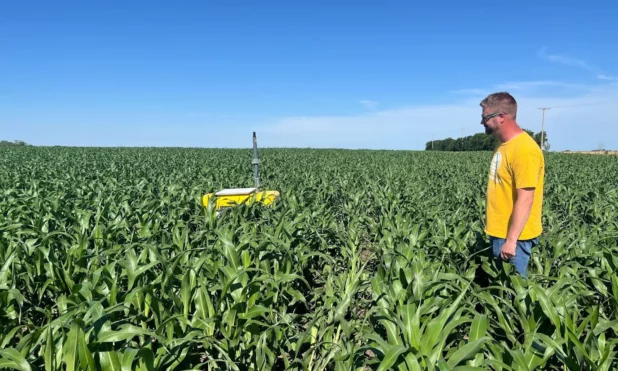
We’ve now developed really solid AI, and we’re still poisoning ourselves for no reason.
It does seem like robots should be able to solve this problem.
On a sweltering summer day in central Kansas, farm fields shimmer in the heat as Clint Brauer watches a team of bright yellow robots churn up and down the rows, tirelessly slicing away any weeds that stand in their way while avoiding the growing crops.
The battery-powered machines, 4ft (1.2 metres) long and 2ft (0.6 metres) wide, pick their way through the fields with precision, without any human hand to guide them.
Brauer, a former California-based tech executive who moved back to his family farm in central Kansas after his father developed Parkinson’s disease, sees the robots as critical tools to help farmers reduce their reliance on chemicals and be more protective of their health and the environment.
Greenfield founder Clint Brauer tests one of his fleet of weed-whacking robots in a Kansas sorghum field.
His Greenfield agricultural technology company now builds and programs its robots in a shed behind an old farmhouse where his grandmother once lived. Twenty farmers are signed up for the robotic services this season, and the company hopes to weed 5,000 acres (2,023 hectares) this year.
“The answer is here,” he said. “This solves a lot of problems for farmers.”
Farmers have been fighting weeds in their fields – pulling, cutting and killing them off with an array of tools – for centuries. Weeds compete with crops for soil moisture and nutrients and can block out sunlight needed for crop growth, cutting into final yields. Over the last 50-plus years, chemical eradication has been the method of choice. It is common for farmers to spray or otherwise apply several weedkilling chemicals on to their fields in a single season.
But as chemical use has expanded, so has scientific evidence that exposure to the toxic substances in weedkillers can cause disease. In addition to glyphosate’s link to cancer, the weedkilling chemical paraquat has been linked to Parkinson’s disease. Another common farm herbicide, atrazine, can be harmful to reproductive health and is linked to several other health problems.
Weedkilling chemicals have also been found to be harmful to the environment, with negative impacts on soil health and on pollinators and other important species. The widespread use of herbicides in farming has fueled weed resistance, leaving many farmers struggling to control weeds in their fields even with repeated applications of herbicides.
Imagine that the government allows big agriculture corporations to poison your food and to poison the water supply but they don’t allow you to know if your son is a tranny.
“This fabulous solution of robots that go through rows and cut weeds (instead of chemicals) will put Chipotle at the top of our list for fast food.” pic.twitter.com/2DkGWdWkXB
— Greenfield Robotics – Innovative Farming Robots (@GreenfieldBots) July 18, 2024

